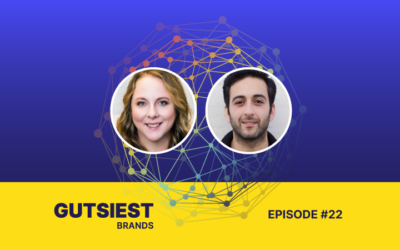Easy, Entertaining, Effective: Apps Need to be More than Innovative to Stand Out
As smartphone sales continue to rise, it’s no wonder that the accompanying app landscape feels pretty crowded. Though Americans aren’t downloading new apps as often, revenue has continued to climb for apps that find new ways to engage users and monetize their behaviors. Snapchat, Tinder, Instagram, and Uber have all proven that brands can be built through apps, while the recent explosion of Pokémon GO shows that an innovative app can still make immediate gains. But when the hype over a new app dies down—we’re looking at you, Pikachu—or when users delete apps due to data usage, bugs, or ads, market research could be the answer to staying relevant to users, helping brands gain further understanding of the features and benefits that drive or obstruct app usage.
The Research
In order to advance our own understanding of the attitudes and behaviors surrounding consumers’ favorite apps, we launched an Instant Research Group* split between two of the most desirable target audiences: Millennials and Generation Z. Our goal was to build tenets on how brands can create more engaging apps across different functions and industries, and our qualitative research objectives were as follows:
- Explore respondents’ favorite apps and why they stand above the rest
- Identify the most useful app on respondents’ phones and explore why it’s a go-to
- Gauge opinions of popular apps and reactions to monetization (in-app payments, ads)
- Prioritize features including convenience, design, connectivity, entertainment, and rewards
The Results

Thanks to some incredibly thoughtful responses, particularly from teens, we learned a lot about what makes for an enticing smartphone app. Overall, social and entertainment apps reigned supreme among both groups of respondents: Generation Z loves the simple, visual combination of social connectivity and entertainment that Instagram offers, while Millennials appreciate the universality of Facebook, allowing them to connect with friends and brands alike.
“Facebook is the most useful because not only can it be used for social media purposes, but it also helps me remember birthdays of those I care about, as well as keeps me updated on current events.” – Female, 18, iPhone user, Infrequent in-app purchases
According to both groups, ease of use is what keeps an app on their phone, with respondents from Generation Z going so far as to equate “entertaining” with “easy to use.” Interactivity and fresh content are great, but they’re quickly shadowed by a complicated interface or technical bugs. Straightforward apps that help streamline daily routines and make lives easier were the most celebrated among both groups.
“I think that having an app that is easy to use overall is most important…I don’t want to waste my quality time trying to figure out a complicated app, I will most likely end up deleting it…” – Female, 23, Android user, Frequent in-app purchases
And don’t even get users started on ads. Both groups found in-app ads annoying, but very few would pay to remove them. In fact, many would rather delete an app entirely than pay to go ad-free.
Q: Imagine that you are using your favorite app and an advertisement pops up. Please search the internet and find a picture that explains how this advertisement would make you feel.
– Female, 16, iPhone user, Never makes in-app purchases
Millennial and Generation Z users are always on the lookout for apps that are straightforward, engaging, connected, and make their lives a little easier. Whether facilitating brand interaction or gaming with friends, these principles hold true across industries and categories, and only scratch the surface of what makes an app stand out in a packed marketplace. Check out the report below for more consumer insights and implications, including
- What features cause Millennials and Generation Z to delete certain apps over others
- Screenshots of respondent’s current phone apps, as well as descriptions of which they engage with during different points of the day
- Which group makes more in-app purchases and why
- Tips on how to leverage in-app rewards so users feel they’re worth the effort
- Suggested app innovations from both groups and ideas for desired planning apps
*An Instant Research Group is an online qualitative research method where respondents interact with each other while answering open-ended questions and follow-ups posted by a trained moderator.
Written By

Amelia Erickson
Demand Generation Manager
Want to stay up to date latest GutCheck blog posts?
Follow us on
Check Out Our Most Recent Blog Posts
When Vocation and Avocation Collide
At GutCheck, we have four brand pillars upon which we build our business. One of those is to 'lead...
Reflections on Season 1 of Gutsiest Brands
Understanding people is at the heart of market research. Sure, companies want to know what ideas...
Permission to Evolve with Miguel Garcia Castillo
(highlights from Episode #22 of the Gutsiest Brands podcast) Check out the latest lessons from our...
1-877-990-8111
[email protected]
© 2023 GutCheck is a registered trademark of Brainyak, Inc. All rights reserved.
© 2020 GutCheck is a registered trademark of Brainyak, Inc. All rights reserved.




